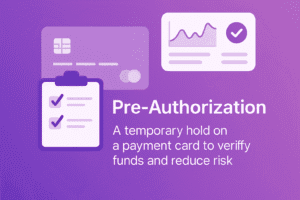Why you should choose FastoPayments over going directly
When businesses start accepting payments, one of the biggest decisions is whether to partner with a Payment Service Provider (PSP) or go directly to an acquirer. While going direct can seem straightforward, it often limits flexibility, slows down scaling, and reduces control.
In today’s payment landscape, flexibility drives growth. From routing to settlement to local payment options, the ability to adapt quickly determines how much revenue a business can capture. This is where PSPs like Fasto deliver measurable value, helping merchants grow faster, increase approval rates, and maintain stability across regions.
According to Aite-Novarica, merchants using flexible, multi-acquirer PSP setups can increase approval rates by up to 15 percent while improving authorization consistency across regions. In a competitive digital economy, that improvement translates directly into higher revenue and better customer retention.
Why Going Direct Limits Growth
An acquirer connects directly to card networks such as Visa and Mastercard to process transactions for merchants. While this model can work for low-risk, domestic businesses, acquirers are often rigid. They offer limited payment methods, slower onboarding, and fixed compliance models that do not easily adapt to a merchant’s industry or geography.
Working directly with an acquirer can bring small benefits such as slightly lower fees or a direct settlement line. The structure works for single-market merchants with stable volumes.
However, most acquirers are not built to adapt. Going direct means:
No backup if your acquirer blocks your business model or market.
Outdated tools that cannot optimize authorizations.
No access to alternative routing or local payment methods.
Minimal support during chargebacks or compliance reviews.
Limited access to corporate and payout solutions needed for global operations.
For merchants expanding internationally, these limitations can restrict growth and hurt profitability.
Why PSPs Offer the Better Model
A PSP is designed to adapt. It connects merchants to multiple acquirers and payment rails through one integration. If one route goes down, another takes over. If a region requires a local method, it can be added quickly.
This flexibility leads directly to better performance. False declines alone cost merchants an estimated 430 billion dollars globally, with around 6 percent of legitimate orders wrongly rejected (Riskified, 2023). By using a PSP that intelligently manages acquirers and local methods, merchants can reclaim part of that lost revenue and improve customer satisfaction.
PSPs are also typically more specialized. While acquirers try to cover every industry, PSPs focus on specific sectors such as adult, travel, gaming, nutraceuticals, and subscription services. This specialization means they understand the risk, compliance, and processing needs of those industries, which leads to faster onboarding and higher approval rates.
Personal Service Makes the Difference
Another major advantage of choosing a PSP is the level of personal support. Banks and acquirers handle large volumes and rarely offer direct assistance beyond account setup.
PSPs operate differently. At Fasto, every merchant receives dedicated support during onboarding, compliance checks, and performance optimization. When an issue arises, merchants speak directly with people who understand their business.
That relationship matters. For high-risk industries or fast-growing merchants, access to experienced support shortens resolution times, reduces uncertainty, and ensures payment stability even in complex operational environments.
True Flexibility Goes Beyond Payments
Flexibility is not only about routing transactions. It also covers the ecosystem that helps merchants operate globally and grow efficiently.
At Fasto, flexibility extends into multiple connected areas that give merchants control and scalability:
Access to local payment methods such as MobilePay, iDEAL, Sofort, Bizum, and more, giving customers regional choices that improve conversions.
Mass Payout solutions that allow instant payouts to affiliates, partners, and creators through bank transfers, card-to-card payments, and local rails.
Corporate structuring and banking support to help merchants expand across jurisdictions and maintain stable financial operations.
Web Hosting and infrastructure through MeHosting.com, a Fasto ecosystem partner that offers fast, SEO-optimized, and reliable hosting tailored for high-risk and global businesses.
This combination makes Fasto one of the few PSPs that supports merchants beyond payment processing. It gives them operational flexibility from how they process transactions to how they host, structure, and scale their business.
Smarter Routing and Optimization
A PSP uses technology to determine the best path for every transaction based on BIN data, country, and issuer behavior. Adaptive retry logic and tokenization can significantly improve authorization rates while reducing false declines.
High-risk Merchants that implement smart routing often see up to 20 percent higher approval rates across mixed traffic sources. For high-volume industries, this directly strengthens the bottom line.
Instead of losing sales due to rigid processing or unavailable methods, a PSP gives merchants control. Each declined transaction becomes an opportunity to recover revenue through a better route.
Expanding Globally with Ease
When expanding internationally, merchants face local regulations, settlement rules, and regional payment preferences. A PSP simplifies this process by managing acquirer relationships, settlements, and compliance under one platform.
Local payment methods also make a major difference. Customers are 60 percent more likely to complete a purchase when they see familiar payment options at checkout.
By centralizing payments through a PSP, merchants save time, reduce costs, and maintain full visibility over performance across markets.
When Going Direct Still Works
For low-risk merchants with steady domestic operations, going direct can make sense once volumes are mature. A direct relationship may slightly reduce fees for those processing predictable, low-risk transactions.
However, for fast-growing, high-risk, or global businesses, the added flexibility, technology, and personal service offered by a PSP far outweigh any potential fee advantage.
Flexibility That Fuels Growth
A PSP is not just a payment service provider. It is a growth partner. Flexibility improves approval rates, reduces false declines, and builds operational strength that directly benefits profitability.
While acquirers focus on simplicity, PSPs focus on adaptability. With Fasto, merchants gain greater control, smarter routing, and an integrated ecosystem that supports them beyond payments – from infrastructure to payment gateways and more so knowledge to help you grow your business.
What is the difference between a PSP and an acquirer?
A Payment Service Provider (PSP) gives merchants access to multiple acquirers and payment methods through a single integration. It manages routing, compliance, and reporting, making payment processing more efficient.
An acquirer, on the other hand, is a financial institution that connects directly to card networks and settles transactions into merchant accounts. A PSP simplifies operations by providing centralized access to several acquirers, saving time and increasing stability.
How much can flexible routing improve my approval rates?
Flexible routing can increase approval rates by up to 15 percent, according to Aite-Novarica. By selecting the best path for each transaction based on card BIN, issuer, and region, a PSP helps convert declined transactions into successful ones.
This flexibility directly increases revenue and reduces lost sales, giving merchants a measurable performance advantage.
Can a PSP help me expand into new markets without extra integrations?
Yes. A modern PSP gives merchants instant access to local acquirers and local payment methods such as iDEAL, MobilePay, Sofort, and Bizum, all through one single integration.
It also supports multi-currency settlements, allowing smooth global expansion without the cost of building new systems or dealing with regional compliance separately. This level of adaptability gives businesses a faster and more compliant entry into new markets.
Do PSPs also support tools like mass payouts, hosting, and corporate banking?
Advanced PSPs such as Fasto provide an extended ecosystem that supports merchants beyond payments.
This includes:
Mass Payout systems for affiliates, partners, and creators.
Secure web hosting through MeHosting.com, optimized for high-risk and global operations.
Corporate structuring and banking support that help businesses expand across regions.
These added services give merchants a complete operational foundation instead of just a payment connection.
Are there measurable cost or admin benefits from using a PSP instead of direct acquirers?
Yes. Research shows that 57 percent of merchants already work with multiple acquirers, and 40 percent of single-acquirer merchants plan to expand within a year. The main reasons include reducing complexity, gaining flexibility, and increasing approval rates.
Using a PSP provides centralized control, faster integrations, and stronger reporting, helping businesses scale more efficiently and reduce administrative costs.
💡 Interested in learning more about what’s included in a typical high-risk merchant account? View our complete breakdown of FastoPayments’s high-risk merchant accounts.




